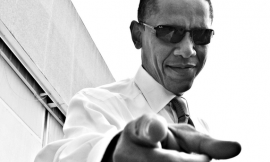Famed scientist Stephen Hawking has died at the age of 76, confirmed his family. The British theoretical physicist and cosmologist was best known for his work on black holes, relativity, quantum physics and the philosophy of science. His book, A Brief History of Time, is one of the best-selling science books of all time.
Professor Hawking’s children Lucy, Robert and Tim said: “We are deeply saddened that our beloved father passed away today. He was a great scientist and an extraordinary man whose work and legacy will live on for many years.”
“His courage and persistence with his brilliance and humor inspired people across the world. He once said, ‘It would not be much of a universe if it wasn’t home to the people you love.’ We will miss him forever,” they added.
Hawking passed away in his home in Cambridge from complications due to ALS (amyotrophic lateral sclerosis), a debilitating motor neuron disease that the Nobel Prize-winning physicist was diagnosed with at the age of 21.
5 Things You Didn’t Know About Stephen Hawking
Stephen Hawking is undoubtedly the world’s most recognizable theoretical physicist, but let’s take a look at five things you might not know about the longtime Cambridge professor:
1. He Puts His Money Where His Mouth Is
When Hawking thinks he’s right about a scientific theory, he doesn’t back down, and he’s not afraid to wager on himself.Perhaps the most famous of Hawking’s bets came in 1997, when he found himself in an argument with fellow theoretical physicists Kip Thorne and John Preskill. Hawking and Thorne contended that the information carried in Hawking radiation in black holes must be “new,” a notion that would have required rewriting quantum physics. Preskill, on the other hand, felt that it was the view of black holes that needed rewriting. Since Hawking had likened the fate of information in a black hole to “burning an encyclopedia,” the men wagered a set of encyclopedias on the outcome of their argument.
In 2004, Hawking presented a paper that contradicted his previously held beliefs, so he conceded the bet and presented Preskill with a copy of Total Baseball, The Ultimate Baseball Encyclopedia.
This bet wasn’t Hawking’s first. In his bestseller A Brief History of Time, he described a similar bet he made with Thorne in 1975. Hawking had long been a believer in the existence of black holes, but he wanted an “insurance policy” that would give him some consolation if his theories turned out to be bunk. The wager: if black holes didn’t exist, Thorne had to cough up a four-year subscription to the British satirical magazine Private Eye for Hawking as a consolation prize. If black holes existed, Hawking had to cover a one-year subscription to Penthouse for Thorne. Hawking eventually made good on his end of the wager and revealed that he had sent Thorne his skin-mag subscription “much to the outrage of Kip’s liberated wife.”
2. The Pope Didn’t Always Support His Work
In 2006 Hawking revealed in a lecture that Pope John Paul II had discouraged the scientist from studying the beginning of the universe. According to Hawking, he was attending a cosmology conference at the Vatican when the Pope warned that while studying the universe was an acceptable pursuit, its origins were the work of God and shouldn’t be explored.
Hawking took the Pope’s grief in stride, though. He joked to his lecture audience that he was glad the Pope hadn’t known about the paper Hawking had presented at the conference, which dealt with ““ you guessed it ““ the beginning of the universe. Hawking playfully explained, “I didn’t fancy the thought of being handed over to the Inquisition like Galileo.”
3. There’s a Story Behind His Voice
Although Hawking is English, his computerized voice synthesizer makes him speak with an American accent. What gives? The voice synthesizer Hawking uses, a DECTalk DTC01, is actually a pretty old piece of equipment from 1986. The synthesizer is bulky and fragile, but Hawking has his reasons for not upgrading. He has said, “I keep it because I have not heard a voice I like better and because I have identified with it.”
Hawking did briefly consider switching to a different machine that would have given him a French accent but said he decided against it because he thought his wife would divorce him. Hawking’s voice box also got a chance to “sing” last year on a A Glorious Dawn, a Jack White-produced vinyl single released as a tribute on what would have been Carl Sagan’s 75th birthday.
4. He’s Had a Nice TV Career
How many scientists can add “Appeared on hit TV shows” to the bottom of their curriculum vitae? In 1994 Hawking made an appearance on Star Trek: The Next Generation, in which he played a hologram of himself who was locked in a poker game with holograms of Albert Einstein and Sir Isaac Newton.
In 1999 The Simpsons wanted to use Hawking in the episode “They Saved Lisa’s Brain,” Hawking agreed not only to allow the producers to use his image but to do his own voicework. Here’s Hawking talking about his first appearance in Springfield:
Hawking would go on to do more guest spots on The Simpsons, and he also appeared on Futurama.
5. Richard Branson Helped Him Float
In late 2006, Hawking publicly advocated for human colonization of other planets and declared that his next goal was to go into space. He even joked “Maybe Richard Branson will help me.” In 2007, the billionaire entrepreneur made it happen. Branson covered all of the costs for Hawking to go on a flight that made the scientist the first quadriplegic to float in zero gravity. Here’s video of the flight and Hawking talking about the experience:




